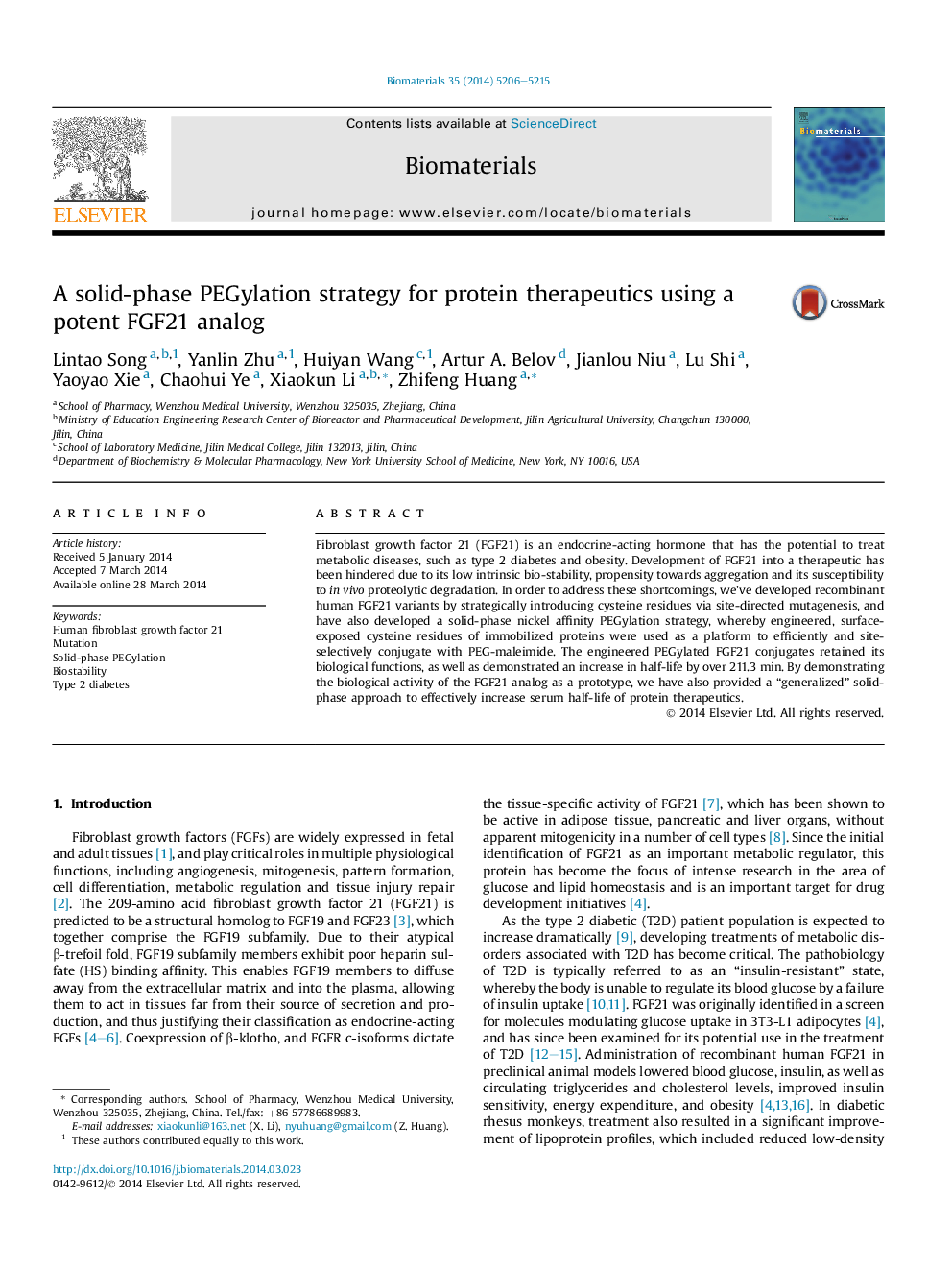| Article ID | Journal | Published Year | Pages | File Type |
|---|---|---|---|---|
| 10227349 | Biomaterials | 2014 | 10 Pages |
Abstract
Fibroblast growth factor 21 (FGF21) is an endocrine-acting hormone that has the potential to treat metabolic diseases, such as type 2 diabetes and obesity. Development of FGF21 into a therapeutic has been hindered due to its low intrinsic bio-stability, propensity towards aggregation and its susceptibility to in vivo proteolytic degradation. In order to address these shortcomings, we've developed recombinant human FGF21 variants by strategically introducing cysteine residues via site-directed mutagenesis, and have also developed a solid-phase nickel affinity PEGylation strategy, whereby engineered, surface-exposed cysteine residues of immobilized proteins were used as a platform to efficiently and site-selectively conjugate with PEG-maleimide. The engineered PEGylated FGF21 conjugates retained its biological functions, as well as demonstrated an increase in half-life by over 211.3 min. By demonstrating the biological activity of the FGF21 analog as a prototype, we have also provided a “generalized” solid-phase approach to effectively increase serum half-life of protein therapeutics.
Keywords
Related Topics
Physical Sciences and Engineering
Chemical Engineering
Bioengineering
Authors
Lintao Song, Yanlin Zhu, Huiyan Wang, Artur A. Belov, Jianlou Niu, Lu Shi, Yaoyao Xie, Chaohui Ye, Xiaokun Li, Zhifeng Huang,
